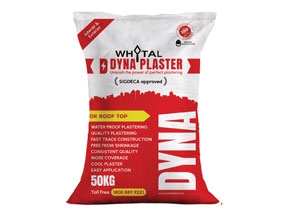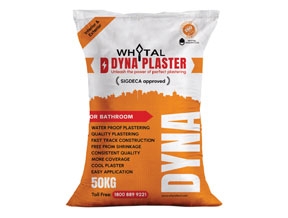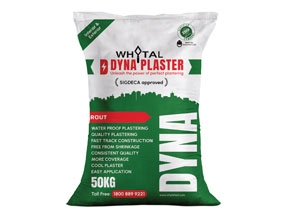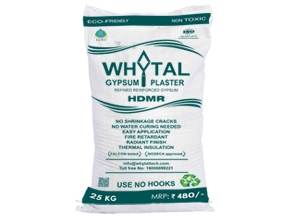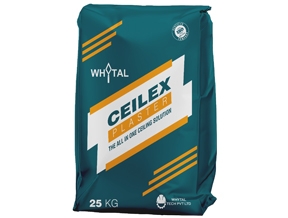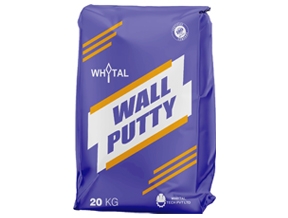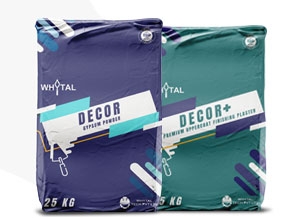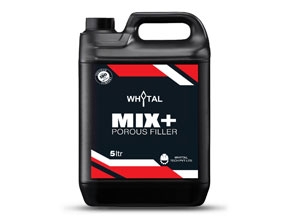Products
Whytal Gypsum Plaster
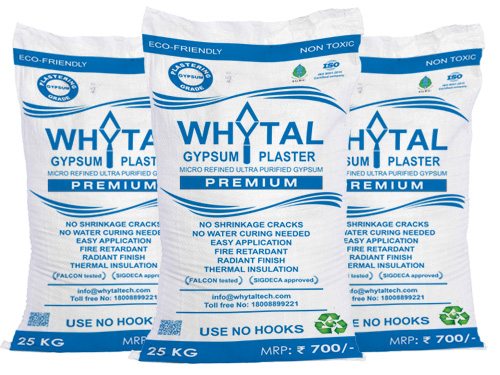
When a wall is constructed with brick or a block, they are all finished with a coat of plaster which is called internal plastering. Traditionally “Internal Plastering” was done using a mixture of sand and cement plaster which is then finished with a POP punning. This is a two stage process and involves multiple compounds like sand, cement and water which is mixed onsite. This form of plastering is replaced by a direct single coat application of Gypsum plaster. Whytal Plaster produced as a result of calcinations of the raw gypsum in an automatic kettle under controlled temperature reduces the whole plastering process into single yet simple process which saves time and manpower.
Construction Safety
Construction Safety
Construction Safety
Construction Safety

What is Gypsum
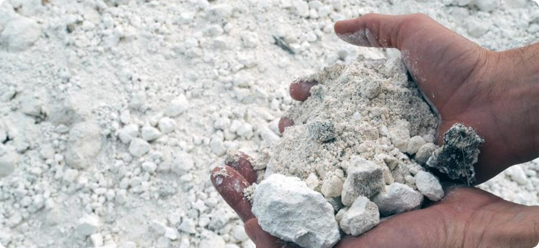
For Years We Are Only Taught To Dress Our Internal Walls And Ceilings Only By The Traditional Way Of Plastering And Fixing As The External Works. What If One Can Replace These With The Best Benefits And More Innovation? Gypsum Was That Magical Product. It Is Basically A Soft Sulfate Mineral Composed Of Calcium Sulfate Dihydrate (CaSO4:2H20) And Widely Used As A Fertilized, In Sculptures, And As Plaster Material. In Recent Years, The Construction Sector Has Witnessed A Number Of New Innovations Across Applications, All Aimed At Making Construction Faster And Delivering Higher Performance.
Why Whytal Plastering?
However, These All Things Are The Advantages Of Gypsum Without Any Further Clarifications But, There Are Cheap Gypsum Providers Who Are Decreasing The Quality Of The Construction. And We Must Beware Of Them. But In Whytal Tech We Are Converting SatinsPar And Salinite Which Are Raw Gypsum Grades Containing High-Quality Natural Fiber To Plaster Grade. As Fibre Is The Base Material, It Is Less Likely To Have Crack.
Material Specification
| Parameter Values | Whytal Gypsum Plaster |
| Coverage | 25 to 30 square feet 50 Kg bag(10-12mm thickness) |
| Compressive | 55-60 Kg./Sq Cm |
| Flexural Strength | 30 -35 Kg./Sq Cm |
| Bulk Density | 0.85 – 0.9 GMS/CU-CMS |
| Moduluse of Ration (Kg. Per CM2) | 40 Kg./ SQ CMS |
| Consistency (Water : Plater Ratio) | (65 Ml – 70 Ml)100/GM |
Our Laboratory Test Results As Per IS-2547-Part-1-1976:
| Test | Method | Results |
|---|---|---|
| Sulphur Trioxide | IS-1288 | 40-65% |
| Calcium Oxide (CaO) | IS-1288 | 31.03% |
| Magnesium Oxide (MgO) | IS-2547 | 0.21% |
| Sodium Oxide (Na2O) | ICP | 0.062% |
| Loss on Ignationat 300C | IS-2547 | 5.50% |
| Free Lime | IS-2547 | Nil |
| Residue on 1.18mm IS Sieve | IS-1607 | Nil |
Technical Superiority
Product/Parameters – 20 – 25 minutes
Setting time – 700 – 800 kg / m3
Dry bulk density – 1200 – 1300 kg / m3
Dry set density – 5 – 7 N/mm2
Compressive strength – 5 – 7 N/mm2
Water plaster ratio – 40 – 45 %

Product Description:
This soft sulfate mineral, comprised of calcium sulfate dihydıate, is a single component substance denoted by the chemical formula CaSO4-2H2O. It exists in the form of a fine white powder, usually with a particle size of 200 mesh, utilized primarily for plastering walls of diverse compositions.
Approvals & Certificates:
IGBC Green building Certificate, ISO 9001-2015 certified company, Best Plasering grade Gypsum 2022-23(GLCbe) & Life time warranty from Whytaltech Pvt Ltd.
Typical use:
Specially designed for plastering Indian walls, gypsum plaster find a variety of applications in the construction industry due to its versatility a ease of use. Some typical uses include interior wall and ceiling finishing, repair and patching, decorative molding & sculpting, false ceilings & partitions, prefabricated modular construction, fire protection, & regulation of indoor humidity levels by absorbing excess moisture from the air.
Caution:
This product is for professionals only. Applicators need training, experience, & proper equipment to handle it safely. They should wear protective gear, ensure ventilation, clean up spills promptly, follow mixing instructions, dispose of waste responsibly, & store it away fi om children. Any suggested changes for site conditions should be considered.
Storage:
Keep it in a dry, sealed container to prevent moisture damage. Stor: it away from dust, water & chemicals, maintaining a stable temperature. Use it before its expiration d. ite for optimal results.
Data Sheet for Whytal Premium
| S/NO | Property | Test/Standard | Results |
|---|---|---|---|
| 1 | Density | IS 2547 (Part 2): 1976 | 651-700 kg/m3 |
| 2 | Coverage | - | >2i sqft/ 25kg bag |
| 3 | Mesh Size | - | ±200 |
| 4 | Compressive Resistance | En 1015:11:2019 | >8 N/mm2 |
| 5 | Pull off test (Band) | ASTM D 4541 ISO4624 | 0.21 N/mm2 |
| 6 | Water Absorption | Karsten Tube Penetration Test IS 2547 (Part 1) |
±8 ml in 10min ±1.70 ml in 20 min |
| 7 | Pot Life | ASTM C472 standard | 15 MIN |
| 8 | Initial Setting Time | IS 2547 (Part 1): 1976 | 12-15 MIN |
| 9 | Age of Plaster | - | 8 months |

Terms of use | Privacy Policy | Contact us
© 2026 Whytaltech. All Rights Reserved




